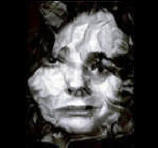|
|
|
|
|
Draft
Committee on Equal Opportunities for Women and Men Parliaments united in combating domestic violence against women Contribution of Ms Sotiroulla Charalambous, contact parlementarian (Cyprus, “Progressive Party of the Working People”) on the fight against domestic violence in Cyprus. 1.0 Legislation and Sanctions relating to Violence against Women Under the law dealing with violence there is no discrimination between men and women and protection of children - victims is reinforced.
1.1 LETTER OF LAW - DEFINITIONS: Cyprus is one of the few countries to have enacted a law dealing specifically with domestic violence. One of the main objectives of the law is to condemn any act of violence within the family and to express its abhorrence for such inhuman behaviour. It also raises substantially the penalties provided by law for ordinary acts of violence. However, one can say that the primary target of this law is to provide protection to victims, by excluding the offending party from the marital home.
1.2 DOMESTIC VIOLENCE In 1994, a law was enacted for the prevention of domestic violence and the protection of victims. Soon after the enactment of the law certain difficulties were encountered as far as the implementation of some of its provisions and therefore an amending bill was prepared. However, when the amending bill was presented to the House of Representatives, it was decided, due to the extensive amendments proposed, to draft a new law in order to repeal and replace the old law. Thereafter, a new bill was drafted which was enacted in July 2000.
1.3 International Conventions Cyprus has ratified all international human rights instruments. There were no reservations in the ratification of the Covenant on the Elimination of All Forms of Discrimination against Women. Cyprus also ratified the Optional Protocol to the CEDAW Convention. 2.0 Effectiveness of Legislation 2.1 Support/Protection Restraining orders Restraining orders may be made against a person accused of an offence of violence that orders him not to enter or stay in the marital home in the following circumstances:
COURT ORDER FOR THE REMOVAL OF A MINOR During the trial for violence against a minor, the court may order that the minor is removed from his/her home and be placed at a place of safety until the case is concluded. Witness protection Under the new Law dealing with Domestic Violence, a victim may in strict confidentiality report the case to the family counsellor, who would then take all measures and steps for bringing the case before the court.
ADVISORY COMMITTEE FOR THE PREVENTION AND HANDLING OF VIOLENCE IN THE FAMILY Established under this Act for the prevention and combat of violence in the family, the committee's remit is to:
MANDATORY REPORTING The reporting of family violence cases is not compulsory by law. However, public officers of the Ministries of Health, Education, Justice and Public Order (Police) and Labour and Social Insurance (Social Welfare Services) have a mandatory duty to report to the Attorney's General’s Office any referrals regarding concerns, suspicions or evidence of family violence including domestic violence. Additionally, according to Article 35A, any person who omits to report a case of violence against a minor or a person having severe mental or psychological deficiencies, which came to his or her knowledge, commits an offence. MANUAL OF INTER-DEPARTMENTAL PROCEDURES A manual of inter-departmental procedures concerning family violence was approved by the Council of Ministers. This document provides a national framework within which statutory departments and professionals draw up and agree upon detailed procedures and ways of working together. Training of the police Members of the police undergo specific training on the subject of Domestic Violence so that they can deal with such cases, to understand and respond to them appropriately and adequately. Given the fact that most complaints are filed by women, special training emphasis is given to women police officers to whom most cases are referred to. The major objective of the training programmes is to increase the participants' awareness and capabilities to assist mainly women and children victims of violence and/or rape, and to advance their knowledge and skills in handling such cases. |

 Print
Print  Send
Send 